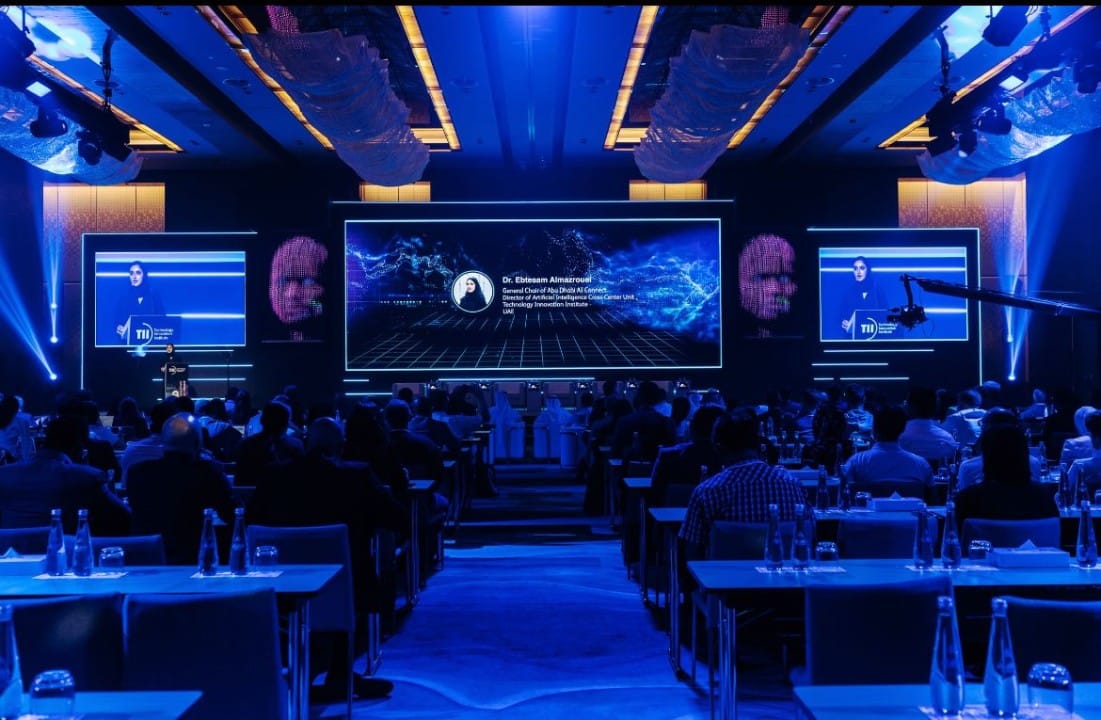Innovative Tech Solutions for Event Coordination, Maintenance Management, and Fleet Oversight
In this blog, we’ll explore the latest tech solutions that streamline event coordination, maintenance management, and fleet oversight, helping you reach peak operational efficiency. Revolutionizing Event Coordination with

Achieving operational excellence is key to modern business success. In this blog, we’ll explore the latest tech solutions that streamline event coordination, maintenance management, and fleet oversight, helping you reach peak operational efficiency.
Revolutionizing Event Coordination with Technology

Organizing events in today’s fast-paced world demands more than just traditional planning. Technology has completely transformed this process, making it easier to manage complex logistics. Digital platforms like event management software streamline everything from planning to execution. These tools offer features such as automated scheduling, real-time updates, and integrated communication, keeping everyone in the loop and on the same page.
Event management software also boosts attendee engagement. Mobile apps provide interactive experiences, instant feedback, and real-time updates, enhancing the overall experience for everyone involved. AI further elevates events by analyzing data to measure engagement and optimize future events based on attendee preferences. Additionally, these platforms often include financial tools to manage budgets, process payments, and generate invoices, offering a comprehensive solution for event planners.
One of the standout benefits of using technology for events is crisis management. Real-time monitoring and automated alerts allow teams to tackle issues quickly, minimizing disruptions. Tools like Virtual Reality (VR) and Augmented Reality (AR) help visualize event setups, allowing planners to anticipate and resolve potential problems before they arise. By integrating technology into event coordination, you not only enhance efficiency and communication but also create memorable and successful events for everyone involved.
Enhancing Maintenance Management with Digital Tools
Effective maintenance management is essential for keeping assets in top condition and ensuring smooth operations. Traditionally, this involved a lot of manual record-keeping and scheduled inspections. Today, Computerized Maintenance Management Systems (CMMS) have revolutionized maintenance management. CMMS integrates all aspects of maintenance, from tracking work orders and managing assets to implementing predictive maintenance.
One key benefit of CMMS is the shift from reactive to proactive maintenance. Predictive maintenance, powered by IoT and AI, uses sensor data to predict equipment failures, allowing for timely repairs. This reduces downtime, cuts repair costs, and extends the lifespan of assets. CMMS can also automate routine tasks and generate maintenance schedules based on real-time data, ensuring that all activities are completed efficiently and on time.
Another major advantage is the improved accuracy and accessibility of maintenance records. Digital tools log all activities, making it easy to access data for better decision-making and compliance with regulations. Mobile CMMS solutions allow maintenance teams to access and update records in real-time, improving communication and coordination. By adopting these digital tools, organizations can optimize their maintenance processes, ensuring operational excellence and cost efficiency.
Streamlining Fleet Management with Advanced Technologies
For companies that rely on transportation, effective fleet management is crucial. Traditional methods often involve manual oversight and lack real-time visibility. Advances in technology have introduced sophisticated solutions that streamline fleet management, improving efficiency, safety, and cost-effectiveness. Fleet management software (FMS) is at the heart of this transformation, offering real-time tracking, maintenance alerts, and driver behavior monitoring.
One of the main benefits of FMS is real-time tracking through GPS. This allows managers to monitor vehicle locations, optimize routes, and ensure timely deliveries. Real-time tracking also enhances security by enabling quick responses to theft or unauthorized use. FMS can generate detailed route history reports, aiding in performance analysis and planning. Integrating IoT devices provides insights into vehicle health, allowing for preventive maintenance and reducing breakdowns.
Monitoring driver behavior is another critical feature of modern FMS. By analyzing data on speed, braking, and idling, FMS can identify risky behaviors and provide feedback or training to drivers. This improves safety and optimizes fuel consumption, lowering operational costs. FMS also helps ensure compliance with regulations related to hours of service and vehicle inspections.
Telematics and data analytics in fleet management tools generate actionable insights for decision-making. These insights can guide route optimization, fuel management, and even vehicle acquisition strategies. Overall, advanced fleet management technologies provide a comprehensive approach to overseeing fleet operations, driving efficiency, safety, and cost savings.
Bridging Operations and Technology for Seamless Management
Achieving operational excellence isn’t just about adopting new technologies—it’s about integrating them seamlessly across different operational areas. Bridging operations and technology involves aligning processes with digital tools to improve productivity, communication, and decision-making. Centralized platforms that integrate event coordination, maintenance management, and fleet oversight ensure streamlined operations.
Training and change management are also crucial for successful integration. Employees need to be trained to use new technologies effectively, and strategies should be in place to address any resistance to change. Providing continuous support helps staff adapt to new tools, maximizing their benefits. By focusing on these areas, organizations can create a cohesive and efficient operational environment, driving success in a competitive market.
The Future of Operational Excellence: Emerging Trends
The future of operational excellence lies in continuous innovation and the adoption of emerging technologies. Technologies like Artificial Intelligence (AI), Machine Learning (ML), blockchain, and advanced analytics are set to transform event coordination, maintenance management, and fleet oversight.
AI and ML offer powerful predictive and prescriptive analytics. In event coordination, AI can personalize attendee experiences and predict trends, making events more engaging. In maintenance management, ML can forecast equipment failures with high accuracy, enabling effective predictive maintenance. For fleet management, AI can optimize routes, predict fuel usage, and even support the move towards autonomous vehicles.
In summary, the future of operational excellence is bright, driven by ongoing technological advancements. Organizations that stay ahead of these trends and embrace new technologies will gain a competitive edge, optimizing their operations to new levels of efficiency and effectiveness.